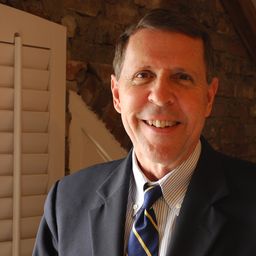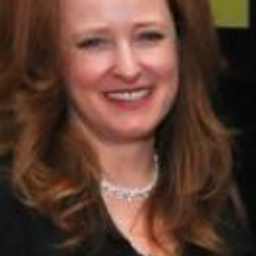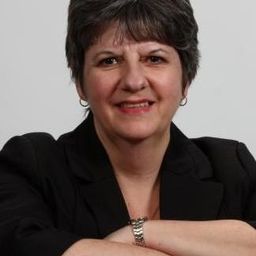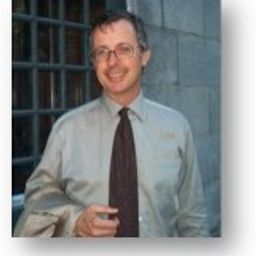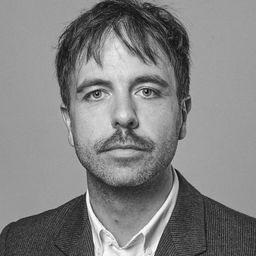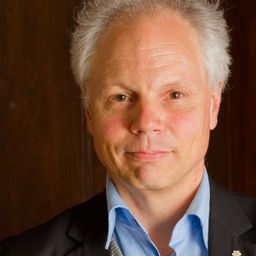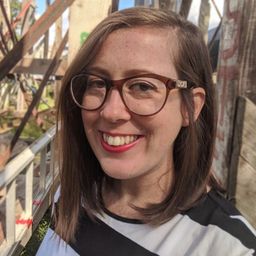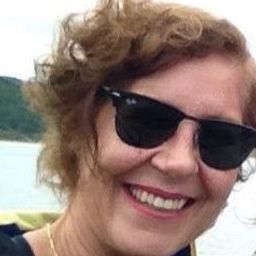
Alina SANTIAGO
Sessions in which Alina SANTIAGO attends
Friday 3 June, 2016
What does heritage change for tourism? | Le patrimoine, ça change quoi au tourisme? Ce débat veut interroger les relations entre le tourisme et le patrimoine et dépasser ainsi les idées reçues sur l'antagonisme entre le tourisme "corrupteur" et le patrimoine qui en serait la victime. Il s'agit donc de repenser le tourisme comme un réel acteur du patrimoine, de sa valorisation et de son appropriation, y compris par les populations locales. Cela présuppose, au p...
Qu’est-ce que le patrimoine change à Montréal? Qu’est-ce que Montréal change au patrimoine? Ce débat vise à mettre en discussion l'évolution et le devenir du patrimoine dans la métropole du Québec en interrogeant les motifs de l'attachement (ou de l'indifférence) de la société civile et des décideurs, mais aussi en questionnant les moyens dont ils disposent pour agir sur le patrimoine. Au-delà de la fameuse "pierre grise" et des matériaux expressifs de l'identité historique de Montré...
Welcome addresses and cocktail, followed by the Concordia Signature Event "The Garden of the Grey Nuns". As the opening ceremony and cocktail take place in the former Grey Nuns' Motherhouse, recycled into campus residence and reading rooms by Concordia University, delegates will also have the possibility to discover the video Three Grey Nuns (3 minutes, by Ron Rudin and Phil Lichti. Three Grey Nuns recount their memories of communal life in the Grey Nun’s Motherhouse. Built...
Working with archival documents and the current-day morphology of the Grey Nuns' site, Dr Cynthia Hammond, Dr Shauna Janssen, in collaboration with Dr Jill Didur, will curate a series of installations and performances that speak directly to the rich heritage of a specific urban landscape: the gardens of the Grey Nuns' Motherhouse, now part of the Concordia University downtown campus. Visitors will have the opportunity to explore the lost working gardens of the Grey Nuns. As with other such...
Saturday 4 June, 2016
Le patrimoine, ça change quoi ? Ou plutôt, qu'est-ce que c'est ? Et pour qui ? Ces questions sont à l'origine de cette exposition conçue par les étudiants à la maîtrise en muséologie UQAM-UdeM. L'opinion de la communauté uqamienne y est confrontée à des citations de chercheurs, avec comme résultat une mise en perspective originale du discours sur le patrimoine. __ How is heritage important? Or rather, what is heritage? And for whom? Those questions are at the core of this e...
What if we changed our views on heritage? And if heritage has already changed? While, on the global scene, states maintain their leading role in the mobilization of social and territorial histories, on the local scale, regions, neighbourhoods and parishes have changed. Citizens and communities too: they latch on to heritage to express an unprecedented range of belongings that no law seems to be able to take measures to contain, often to the discontent of...
Essentiellement construite sur des questions d’aménagement et d’environnement, urbain ou non, cette session est envisagée à la croisée de plusieurs thématiques: les «communautés imaginaires», les usages du patrimoine dans le tourisme, le rapport à l’expertise. Nous proposons de décrire et d’organiser un faisceau de situations et d’exemples, qui ressortissent à une même hypothèse sur le caractère social, la nature de bien collectif et le rôle de catalyseur des transformations joué par le pa...
The contemporary movement of heritagization, characterized by a multiple expansion (typological, chronological, spatial) of heritage and of heritage producers (local actors, inhabitants, social groups, national states, international players), nourishes also the production of alternative heritage. By this expression, we wish to focus on non-institutional, dissonant, under-recognized heritage, located on the “pioneer front” of contemporary heritage production. Alter-heritage represents, therefo...
Most of what we experience as heritage emerges into conscious recognition through a complex mixture of political and ideological filters, including nationalism. In these processes, through a variety of devices (museums, scholarly research, consumer reproduction, etc.), dualistic classifications articulate a powerful hierarchy of value and significance. In particular, the tangible-intangible pair, given legitimacy by such international bodies as UNESCO, reproduces a selective ordering of cul...
Sunday 5 June, 2016
In English and French The two Inuit artists Nina Segalowitz and Taqralik Partridge are offering us an initiation to katajjaniq, this thousand years old autochthonous expression of overtone singing which consists of an alternate dialogue of inhaled and exhaled guttural and vocal sounds. Throat singing is practiced just like a game: two women facing and challenging one another until one of them either laughs or runs out of breath. (Meeting point: DS Registration table) _...
Le patrimoine, ça change quoi ? Ou plutôt, qu'est-ce que c'est ? Et pour qui ? Ces questions sont à l'origine de cette exposition conçue par les étudiants à la maîtrise en muséologie UQAM-UdeM. L'opinion de la communauté uqamienne y est confrontée à des citations de chercheurs, avec comme résultat une mise en perspective originale du discours sur le patrimoine. __ How is heritage important? Or rather, what is heritage? And for whom? Those questions are at the core of this e...
La conservation des quartiers anciens ne se réalise probablement jamais sans être accompagnée de tensions sociales de différentes sortes. Si, dans les années 1960 et 1970, de nombreux projets ont pu être motivés par la résistance citoyenne aux formes les plus néfastes de la rénovation urbaine, aujourd’hui, on a l’impression que la volonté de conserver le patrimoine urbain aboutit presque systématiquement à la «gentrification – un terme qui ne renvoie pas uniquement à l’embourgeoisement d’un...
"What does heritage change?" is a multifaceted question to which the answer(s) are in primary respects related to real-life negotiations among different groups of citizens, cultures, races, ethnic groups, sexual identities, and social classes about received, official and/or widely accepted or accomodated intangible attributes, cultural traditions, historic monuments, buildings, and other transmitted or revived historical legacies. Heritage designated by and for whom, for what motivations, an...
Directed by Tom Fassaert and presented by Marc Jacobs. ___ Doel, a Belgian village near the Dutch border, is disappearing quickly and deliberately. Not because of the four old nuclear reactors on its territory, but because the Flemish government decided that the village might block projects for new docks for the Antwerp harbour, plans developed since the 1960s. In the 21st century this process of officially encouraged depopulation is coming to an end: 2500 inhabitants i...
Monday 6 June, 2016
La Pointe: L’autre bord de la track / The Other Side of the Tracks (COHDS /Public History Students, 2015 - bilingual) takes walkers into a working-class neighbourhood that has undergone massive deindustrialization and is now gentrifying. Pointe-Saint-Charles is also known for its place-based activism and strong neighbourhood identity. Produced by the oral history students in Steven High’s Working Class Public History course, working closely with two other cl...
This session seeks to explore the role of urban heritage in mediating and contesting political conflict in the context of divided cities. We take urban heritage in a broad sense to include places left, scarred or transformed by geo-political dispute, national and ethnic division, violence and war. The case studies can include tangible spaces such as elements of border architecture, historic sites, ruins and urban traces of the conflict, and memorials; as well as intangible elements of city, i...
As Canada shifts from a resource-based economy to a knowledge-based economy, small communities that were established to service the primary sector are faced with a complex and unique set of challenges. They are communities built on a culture of hard work, resourcefulness, and creativity; their residents are now tasked with developing strategies to deal with a lack of employment, depopulation and resettlement. Small is premised on the notion that leveraging the rich cultur...
Le patrimoine fait aujourd’hui l’objet d’attentions autant que d’agressions et de destructions. Cela peut s’expliquer par les difficultés de son identification ou de sa conservation. Cela peut plus profondément s’expliquer parce que, dès le départ, il célébre un événement ou conserve une mémoire qui peut être ou devenir une source de dissenssions et de conflits politiques. Enfin, sa reconnaissance suscite des gains économiques pour les uns mais des pertes pour les autres. Mais peut-être...
Tuesday 7 June, 2016
Si la ville moderne occidentale se transforme, sous l'action des aménageurs, en écho à des utopies, des programmes de développement et des intérêts économiques, on néglige trop souvent l'action quotidienne d'habitants et d'acteurs sociaux qui s'approprient les lieux et contribuent à les transformer. Dans cette mutation de la ville, le patrimoine se trouve à la croisée d'enjeux économiques et sociaux singuliers: d'une part il est convoqué par les aménageurs et les acteurs de la gentrification ...
While historical churches are being abandoned all over the Christian West, more and more places are growing the opposite way: pilgrimage sites are being enlarged and enhanced, whole urban districts are being developed with churches and temples boasting diverse, and often unorthodox, religious practices. Epistemologically linked to heritage, the sacred now seems to follow a path of its own, staging itself in new settings where the “religious heritage” refers mostly to common practices, however...

